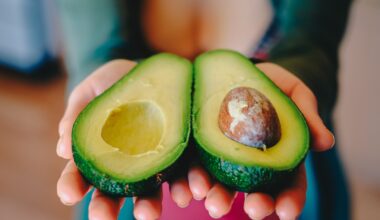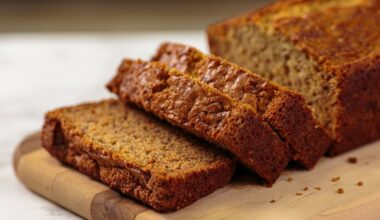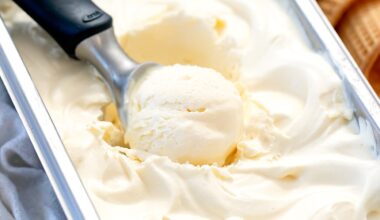As you get older, your body gradually loses its ability to fight aging, and the effects become more visible on your skin and overall appearance. However, aging is a natural process that can be slowed down by making smart lifestyle choices and eating the right diet. By incorporating certain anti-aging superfoods into your daily meals, you can boost your skin health, reduce wrinkles, and maintain a youthful glow. The key is to eat these foods regularly to reap their anti-aging benefits. Here are the top anti-aging superfoods you should be eating every day for a youthful complexion and to slow down aging. By following this guide, you’ll be on your way to a lifetime of healthy, ageless beauty.
Berries
Berries, especially blueberries, blackberries, and cranberries, contain antioxidants that help prevent cell damage and provide anti-aging benefits. Antioxidants are compounds that protect against free radicals, unstable molecules that can damage cells. Berries are one of the best sources of antioxidants which help slow down aging and reduce the risk of disease.
Eating one to two cups of mixed berries three times a week can reap significant anti-aging rewards. Blueberries, in particular, have been shown to boost skin health and hair growth. They also contain anthocyanins, the pigments that give them their blue hue, which may improve memory and cognition as you age. Blackberries contain ellagic acid, an antioxidant compound with anti-cancer effects.
Adding berries to your diet is an easy way to boost your health and support graceful aging. Enjoy them plain as a snack, add them to yogurt or oatmeal, blend them in a smoothie, or get creative and add them to salads. For maximum nutrition, choose fresh or frozen berries over sugary berry products like jams, syrups or juices. Make berries a staple in your daily diet to maximize their anti-aging benefits and maintain a youthful glow at any age.
Leafy Greens
Leafy green vegetables like spinach, kale, and Swiss chard are anti-aging powerhouses.
Packed with Antioxidants
Leafy greens are loaded with antioxidants like vitamins A, C and E that help fight free radicals, unstable molecules that damage cells. Antioxidants help slow down aging by reducing inflammation and protecting skin and tissues from oxidative stress.
Reduce Wrinkles
The vitamin C in leafy greens helps boost collagen production. Collagen is the main structural protein in skin that provides elasticity and firmness. As we age, collagen breaks down, leading to wrinkles and sagging skin. Eating leafy greens rich in vitamin C can help slow this process and reduce signs of aging.
Promote Eye Health
Leafy greens contain lutein and zeaxanthin, two antioxidants that help prevent age-related vision decline and reduce the risk of cataracts and macular degeneration. Eating leafy greens 3-5 times a week may help you maintain healthy vision well into your senior years.
Improve Bone Health
Calcium, vitamin K and potassium found in leafy greens are important for bone health and preventing conditions like osteoporosis that often come with age. Leafy greens help maintain bone density and strength, reducing the risk of fractures as you get older.
In summary, making leafy green vegetables a regular part of your diet can have significant anti-aging benefits by reducing inflammation, protecting your skin and eyes, and keeping your bones strong. For maximum anti-aging power, aim for 2-3 cups of raw leafy greens daily. Your body and youthful glow will thank you.
Avocados
Avocados contain healthy fats that are good for your skin and overall health. The monounsaturated fatty acids found in avocados help reduce inflammation in the body and protect skin cells.
Avocados are high in antioxidants
Avocados contain antioxidants like vitamin C, vitamin E, beta-carotene, and lutein that help fight free radicals and slow down the aging process. Free radicals are unstable molecules that damage skin cells and cause wrinkles. Antioxidants neutralize free radicals and may help reduce skin damage and aging.
Eating one avocado a day can provide 20% of your daily vitamin E needs and over 10% of your daily vitamin C requirement. Both vitamins E and C boost collagen production and promote skin elasticity.
Avocados hydrate and moisturize skin
The healthy fats in avocados help keep skin hydrated and moisturized. Dehydrated skin appears dull and aged. The monounsaturated fats found in avocados absorb deeply into the skin to keep it supple and soft.
Avocados also contain compounds called sterols, including beta-sitosterol, that can help improve skin hydration and reduce inflammation. Beta-sitosterol and other plant sterols are thought to help strengthen and protect skin cells.
Avocados may reduce wrinkles
The antioxidants and healthy fats in avocados can help reduce the appearance of wrinkles and fine lines. A diet high in antioxidants and healthy fats promotes skin elasticity and protects skin cells, which may help minimize wrinkle formation.
Including avocados in your daily diet is an easy way to boost your skin health and support your anti-aging goals. Just one-half of an avocado contains nearly 20 grams of healthy fat and a variety of vitamins and antioxidants for youthful, glowing skin.
Nuts and Seeds
To maintain a youthful glow, consume nuts and seeds daily. They are packed with anti-aging nutrients like healthy fats, fiber, and antioxidants.
Walnuts
Walnuts are an excellent source of omega-3 fatty acids, which promote skin health and reduce inflammation in the body. They also contain antioxidants that help prevent cell damage from free radicals. Aim for 1 ounce, about 14 halves, a few times per week.
Almonds
Almonds are high in vitamin E, a potent antioxidant that protects skin cells from environmental damage. Just 1 ounce contains nearly 50% of your daily vitamin E needs. Almonds also have protein, fiber, and magnesium, which is important for skin cell health and collagen production. Have a handful as a snack, add to yogurt or oatmeal, or use in place of breadcrumbs.
Chia Seeds
Chia seeds are a plant-based source of omega-3 fatty acids, which keep skin moisturized and reduce the appearance of wrinkles. They also contain compounds that help block enzymes that break down collagen, keeping your skin firm. Chia seeds can be sprinkled on yogurt or oatmeal, added to smoothies, or used as an egg substitute in recipes. Aim for 2 tablespoons a few times per week.
Flax Seeds
Like chia seeds, flax seeds contain omega-3 fatty acids that promote skin health and protect against cell damage. They are also high in lignans, compounds that help balance hormones and may help reduce skin aging. Add 1-2 tablespoons of ground flax seed to yogurt, oatmeal, or smoothies a few times per week. Whole flax seeds are hard for our bodies to digest, so grind before consuming.
Olive Oil
Olive oil is a key component of the Mediterranean diet and is renowned for its anti-aging effects. Olive oil contains beneficial plant compounds called polyphenols that act as antioxidants, helping to prevent cell damage and promote longevity.
Polyphenols like hydroxytyrosol have anti-inflammatory effects and may help slow or prevent age-related diseases. Olive oil is particularly high in these compounds compared to other plant oils. Hydroxytyrosol in particular is thought to help fight free radical damage, which accelerates skin aging and wrinkling.
Olive oil also contains healthy fats, including omega-3 fatty acids and monounsaturated fats like oleic acid. These fats keep skin supple, soft, and wrinkle-free. Omega-3s also help reduce inflammation in the body, which can lead to skin conditions like acne or eczema.
Using Olive Oil for Skin Health
To maximize the anti-aging benefits of olive oil, use it both internally and topically:
•Cook with extra virgin olive oil instead of butter or vegetable oil. Aim for 2-3 tablespoons per day. Extra virgin olive oil retains the most polyphenols since it is less processed.
•Make an olive oil salad dressing or dipping sauce. Whisk 3 parts extra virgin olive oil and 1 part vinegar or lemon juice, and season with herbs and spices.
•Apply olive oil directly to your face and body. Gently massage olive oil into your skin, especially after bathing while your pores are open. Let it soak in for 10-15 minutes before rinsing or showering. This helps moisturize skin and provides antioxidant benefits.
•Look for olive oil as an ingredient in skincare and cosmetic products. Many natural brands now incorporate olive oil and olive-derived ingredients like squalene into their anti-aging product lines.
Conclusion
As you’ve seen, there are many foods you can incorporate into your daily diet to support anti-aging and maintain a youthful glow. By consuming these superfoods which are high in antioxidants, healthy fats, vitamins and minerals on a regular basis, you provide your body with the nutrients it needs to function optimally and support skin health and collagen production. Your skin, health and overall vitality will thank you for making these foods a priority in your life. Choose a variety of these anti-aging superfoods and aim for several servings per day for the biggest impact. Focusing on a balanced diet with lots of whole foods is the best way to achieve a healthy, youthful appearance that radiates from within. Make these superfoods a habit and you’ll be well on your way to timeless beauty and wellness.






